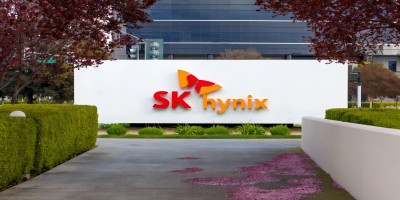Recently, news about Samsung Electronics' new wafer fabrication plant in Taylor, Texas, the United States, has attracted widespread attention. It is reported that the construction of the factory is nearly completed, with a completion rate as high as 99.6%. However, against the backdrop of weak market demand and increased uncertainty in the macroeconomic environment, Samsung Electronics has decided to postpone the import of key production equipment. This strategic adjustment may not only expose the company to the risk of high tariffs in the future, but also reveal the predicament the company is facing in expanding its production scale.
Generally speaking, during the period of 3 to 6 months before the completion of semiconductor manufacturing facilities, enterprises will start to introduce necessary production equipment. However, Samsung chose to delay this step this time. According to insiders in the industry, Samsung Electronics made this decision mainly out of concerns about the current market situation and economic outlook. In this case, delaying the introduction of equipment may lead to increased costs in the future and affect the commissioning schedule of the new factory.
What is more concerning is that Samsung Electronics' foundry business is experiencing significant financial challenges. Following an operating loss of approximately 2 trillion won (about 1.5 billion US dollars) recorded in 2023, the department's loss is expected to double last year to 4 trillion won (about 3 billion US dollars). Analysts predict that if the current trend continues, the losses of the foundry sector may further expand to 3 trillion won (approximately 2.25 billion US dollars) in 2025. Facing such financial pressure, since Jeon Young-hyun became the head of the semiconductor business, Samsung has begun to reduce capital expenditure, attempting to stabilize the company's financial health in this way.
In addition to the new factory in the United States, Samsung's main production base in South Korea - the Pyeongtaek factory - has also encountered similar difficulties. Specifically, the plan to introduce new equipment for the P4 production line at the Pyeongtaek plant has also been postponed, indicating that even the core production base located in the country cannot completely avoid the impact brought by external market fluctuations.
It is worth noting that Samsung is not the only enterprise that has encountered difficulties in the process of global expansion. For instance, TSMC is also confronted with a series of challenges at its new factory in Arizona, the United States. Although the factory has been put into operation, due to the high labor costs and the continuous demand for infrastructure investment, the cumulative losses over the past four years have reached 39.45 billion New Taiwan dollars (approximately 1.22 billion US dollars). In addition, TSMC's subsidiaries in Japan and Germany were not spared either: Its Japanese subsidiary JASM suffered a huge loss of 4.38 billion New Taiwan dollars after starting the production of 12-nanometer and older process chips in Kumamoto. The new factory located in Dresden, Germany, suffered a loss of approximately 500 million New Taiwan dollars.
* Disclaimer: This article is sourced from the Internet. If there is any dispute, please contact customer service.



